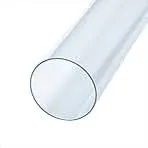Nov . 18, 2024 05:32 Back to list
pp board
The Rise of PP Board A Versatile Material Revolutionizing Industries
In the ever-evolving landscape of materials science, PP board, or polypropylene board, has emerged as a game-changer across various industries. Known for its lightweight, durable, and versatile properties, PP board is increasingly being utilized in applications ranging from packaging to construction and beyond. This article explores the benefits, applications, and future potential of PP board, highlighting why it is becoming a preferred choice for businesses worldwide.
What is PP Board?
PP board is manufactured from polypropylene, a thermoplastic polymer known for its resilience and adaptability. It is available in a variety of thicknesses and sizes, making it highly customizable for different applications. One of the defining characteristics of PP board is its ability to maintain structural integrity under stress while being resistant to moisture, chemicals, and UV light. These qualities make it an ideal material for both indoor and outdoor uses.
Key Benefits of PP Board
1. Lightweight and Strong One of the most appealing aspects of PP board is its lightweight nature, which facilitates easy handling and transportation without compromising strength. This property is particularly advantageous in industries where weight reduction is a priority, such as automotive and aerospace.
2. Durability PP board boasts excellent resistance to various environmental conditions, including moisture and chemical exposure. This durability ensures that products made from PP board can withstand harsh conditions and have a longer lifespan compared to alternatives.
3. Eco-Friendly As sustainability becomes a central focus for businesses globally, PP board stands out as a recyclable material. This attribute aligns with the increasing demand for environmentally friendly materials, allowing companies to meet consumer expectations while minimizing their ecological footprint.
4. Cost-Effectiveness The production cost of PP board is relatively low compared to other materials, making it a cost-effective solution for manufacturers. Its durability and lightweight nature also contribute to reduced shipping costs, further enhancing its economic appeal.
5. Versatility The range of applications for PP board is extensive. From signage and displays to protective packaging and construction materials, its ability to be easily fabricated, printed on, and molded means it can suit almost any need.
Applications of PP Board
pp board

PP board is revolutionizing numerous sectors through its wide array of applications
- Packaging PP boards are utilized in producing packaging solutions that are lightweight yet strong, making them ideal for transporting goods safely. Their moisture-resistant characteristics ensure the protection of products against the elements.
- Construction In the construction sector, PP boards can be used for wall panels, partitions, and even as formwork for concrete. Their durability against the elements ensures that structures can be built to last.
- Signage and Displays The printability of PP boards allows for vibrant graphics and customizable signage options, commonly used in retail environments, exhibitions, and promotional events.
- Automotive The automotive industry benefits from PP board in applications such as interior panels, dashboards, and other components where lightweight but strong materials are critical.
- Furniture Increasingly, PP boards are being used in the manufacture of modern furniture, providing stylish and functional solutions for home and office spaces.
The Future of PP Board
As industries strive for innovation, the future of PP board appears promising. Continuous advancements in technology are likely to enhance the material's properties, making it even more attractive for new applications. With increasing awareness about sustainability, PP board is poised to play a crucial role in the shift towards eco-friendly materials.
Moreover, as regulations regarding waste management become stricter, the recyclability of PP board positions it favorably against conventional materials. The ongoing research to improve the manufacturing processes and explore biopolypropylene variants could lead to further opportunities for PP board in niche markets.
Conclusion
In conclusion, PP board represents a significant advancement in material science, providing sustainable, cost-effective, and versatile solutions across multiple industries. As businesses continue to seek out innovative materials that align with sustainability goals, PP board is set to become an integral component of modern manufacturing and design. Its advantages are undeniable, making it a material of choice for the future.
-
Durable PPR Pipe for Hot & Cold Water Systems - Easy Install
NewsAug.14,2025
-
Durable HDPE Sheet | Versatile & Impact-Resistant Plastic
NewsAug.13,2025
-
Premium PVC Soft Sheets: Clear, Flexible & Durable
NewsAug.12,2025
-
Premium PVC Round Rods: Durable, Chemical Resistant, Easy to Machine
NewsAug.11,2025
-
PP U-channel: Chemical-Resistant, Lightweight & Durable
NewsAug.10,2025
-
Transparent PVC Pipe: Clear Flexible Tubing for Fluids
NewsAug.09,2025

